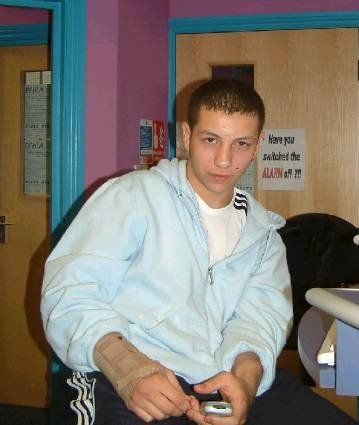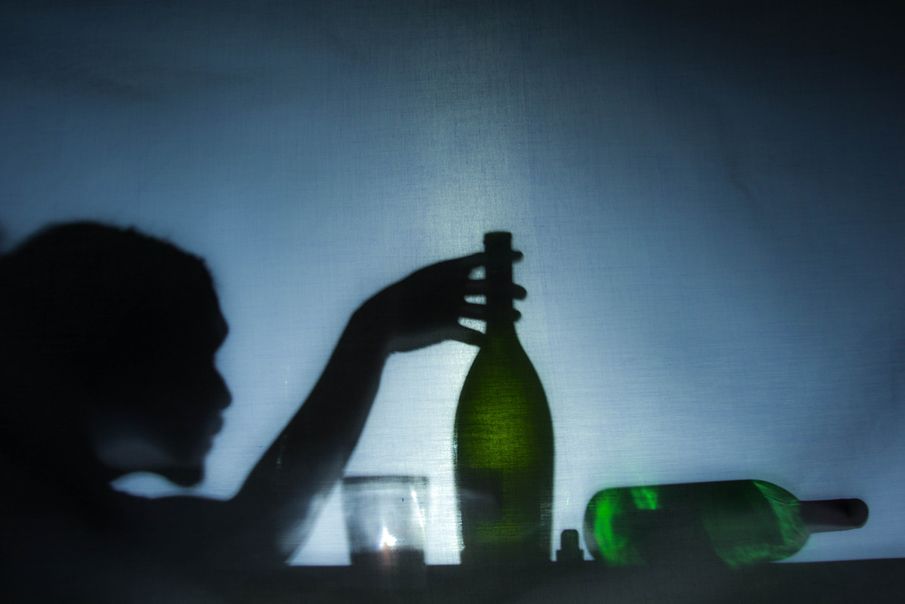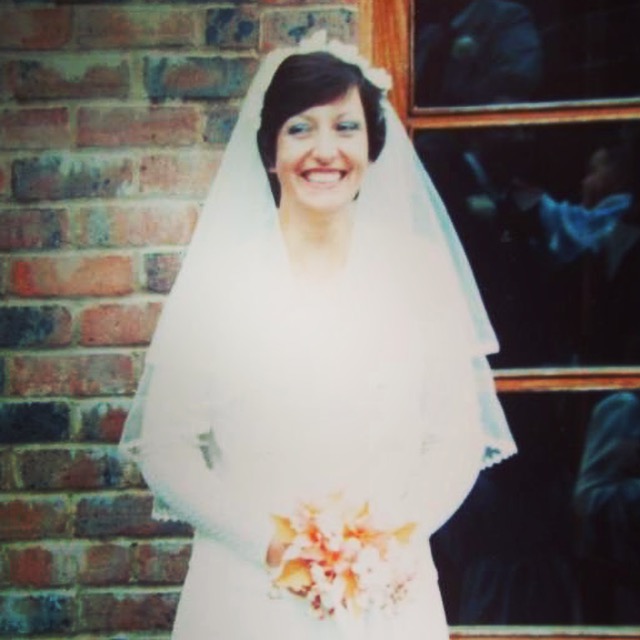James Mowat grew up in a traumatising environment, but being abandoned by his mum gave him the motivation to make a success out of life

My parents divorced when I was four years old. I only have vague recollections of my mum as a child, apart from when she would promise to visit my sister and me, but not show up. I remember sitting on the driveway, looking up the road to the bus stop hoping to see her get off, but to no avail. Growing up with my dad wasn’t easy. He was strict and had a partner who was incredibly controlling. I felt very suffocated at home, but on the odd occasion I saw mum, she would give me loads of freedom. At 12-years-old, I ran away to live with her.
It wasn’t until a few months into my new life that I realised my mum was an alcoholic. Her new husband also had drinking problems. The pair of them would sit and drink a box of wine or two in the evening.
During my early teenage years, my personality changed tremendously, from a well-mannered child to someone who was angry, upset and at times felt abandoned due to mum’s drinking and volatility. I experimented with cannabis at 13, and my mum even allowed me to smoke – the freedom, eh?
My interest in school diminished, and things got worse between mum and her husband. The arguments would escalate, and on numerous occasions mum left to live in refuges. This grew in seriousness to the point where mum was hit by her husband. I fought him, we’d leave, come back again, and the circle would continue.
Mum's drinking was incredibly bad at this point. She hid bottles all around the house, and I'd hear the metal cap of a bottle of vodka being loosened at 11pm and 6am
This endless cycle of domestic violence led to mum and me being housed in a “mother and baby” unit in my home town. I was 14 and hadn’t seen my sister or dad in about two years. Mum’s drinking got worse. She would vanish for days. I’d end up calling the police and the local hospitals to find out where she was. I was stealing to eat and my attendance at school dropped. I was on anti-depressants and sleeping tablets, meaning social services were called.
Mum would spend all day getting drunk in the park with alcoholics and drug users. I spent a lot of time with them, and even saved someone’s life when he overdosed, only for him to pass away, at just 16-years-old, from another heroin overdose.
We stayed there for around 12 months. Mum dated different alcoholics and the cycle would go on, with her being so brutally beaten once that her hair was matted with blood, her eyes swollen with bruising, and her chin cut. The individual was sentenced to 12 months in prison. Eventually we moved into our own flat through the council. Mum’s drinking was incredibly bad at this point. She hid bottles all around the house, and I’d hear the metal cap of a bottle of vodka being loosened at 11pm and 6am. I would follow her sometimes and catch her shoplifting alcohol. Once I even warned a security guard because I didn’t want her to have her poison, and she was arrested.
I was 16 when a bailiff knocked on our door at 8am. Mum hadn’t been paying the rent. We were removed on the spot. I went to sit on the wall outside the block of flats, but mum never returned. I ended up sleeping rough for a few nights until I called my sister – on a reverse charge.

I’d been banned from my father’s house by his girlfriend, so I had nowhere to go and no clue as to where mum was. Social services gave us the number of a local charity called Emmaus Project (now Step by Step), a local youth hostel for homeless 16–25 year olds. They gave me a sleeping bag and promised me a bed after a couple of nights.
I was immensely grateful for the roof over my head, the food in my belly, and the support I was receiving from the wonderful people at Emmaus; but I wanted more. I wanted to make something of myself.
My dad helped me write a CV. I tried relentlessly to find a job and was interviewed and rejected repeatedly. I was seen as just another homeless teenager, probably on drugs, and unreliably troublesome.
Eventually, I was employed at the jobseekers centre, but it was awkward as I saw a lot of people I was living with in the hostels.
I can’t remember how, but my sister tracked down my mum. Things hadn’t gotten any better with her condition, and her dependency was still really bad. Things went quiet and I discovered she’d been put in prison for shoplifting again. She tried to get in contact with me after a few months but I couldn’t face it. Every time she reached out, she would drag me down to the extent that I needed counselling. This had to stop, so I made one of the hardest decisions in my life.
I cut her off.
I didn’t speak to mum for around three years. My sister was in touch with her, so I knew she was living in a place that was supporting alcoholics with a route back to the community. I was doing well, with a great group of friends and working as an international recruiter. I had a girlfriend, was earning reasonable money, and having fun like most 19-year-olds do. Over the next year, I spoke to mum on a couple of occasions, and she seemed to be getting back on track. She said she was off drinking, but I’d heard this so many times that I still kept her at arm’s length. Instead, I spoke to her keyworkers, who advised me on her progress, or lack of.
A year went by and I had moved into a bungalow with my girlfriend. Life was good, so I wanted to bury the hatchet and help her financially.
I set off with the intention of surprising mum just ahead of Mother’s Day. I knocked on her door a few times and visited the bakery where she worked. They hadn’t seen her in a couple of weeks. I returned to the house but there was still no answer. I wrote my mobile number on her card and set off home.
A week went by and I hadn’t heard a peep from mum. I knew something was wrong. Mum had always called me her little boy, through thick and thin. I was the apple of her eye. I knew as soon as she had my number, she would walk 20 miles to a phone box, but I’d not heard a word.
Never give up or be a victim of your own story. Use your struggle to empower you
When my dad and sister turned up out of the blue to see me, I immediately knew what was wrong. My whole body felt completely paralysed. I fell in a heap, crying uncontrollably.
A few tough weeks went by of feeling every emotion possible. It was a deep internal pain I had never felt before. We were given the autopsy verdict. Mum had died of liver failure due to excessive alcohol consumption.
My emotions escalated for weeks on end. I was constantly blaming myself. Why did I wait so long to patch things up? I hated myself and shut myself away from everyone. I couldn’t be around alcohol or even walk into a pub because if felt like I was sitting with the person who murdered my mum.
I endured the pain on my own for years without acknowledging my feelings and problems. I have succeeded in my work life for the last 11 years, but didn’t consider how all of this trauma had affected me internally, limiting my ability to connect with people. Through my amazing sister Sarah’s encouragement, I’ve had counselling and coaching for the past year, which I would recommend to the end of the earth for anybody. It’s helped me accept the past, reconnect with my dad and understand my behaviour. I feel incredible now, full of confidence and much more open with people.

I continue to work closely with Step by Step and my work, Energi People, support me tremendously in raising money for this fantastic homeless charity. To date we’ve raised around £3,500!
My aim now is to become a life coach to help people discover who they really are. In sharing my story, I hope people see that no matter what your circumstances, you’re capable of achieving anything. Never give up or be a victim of your own story. Use your struggle to empower you. It’s the greatest feeling.



Comments